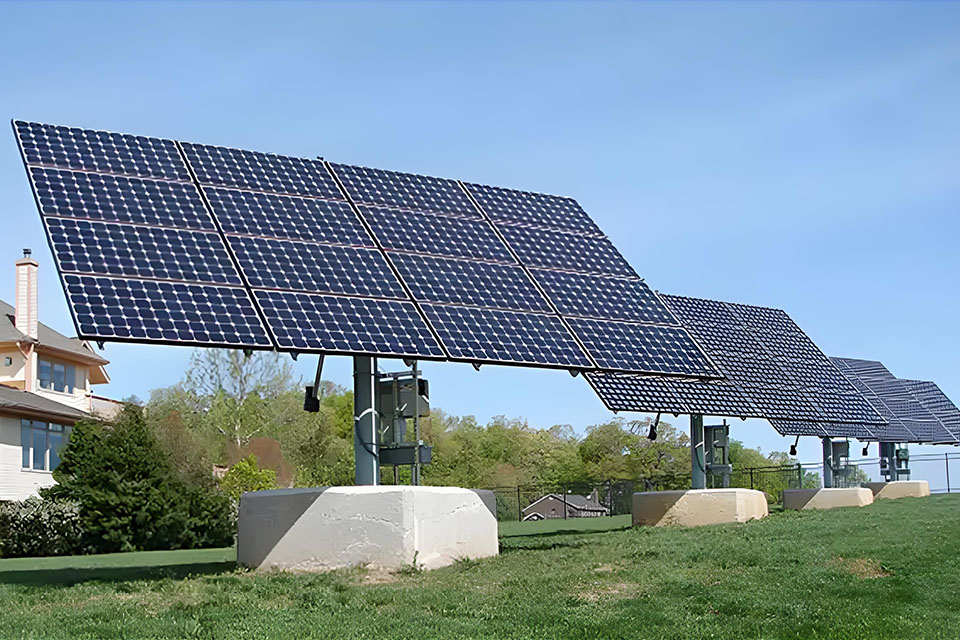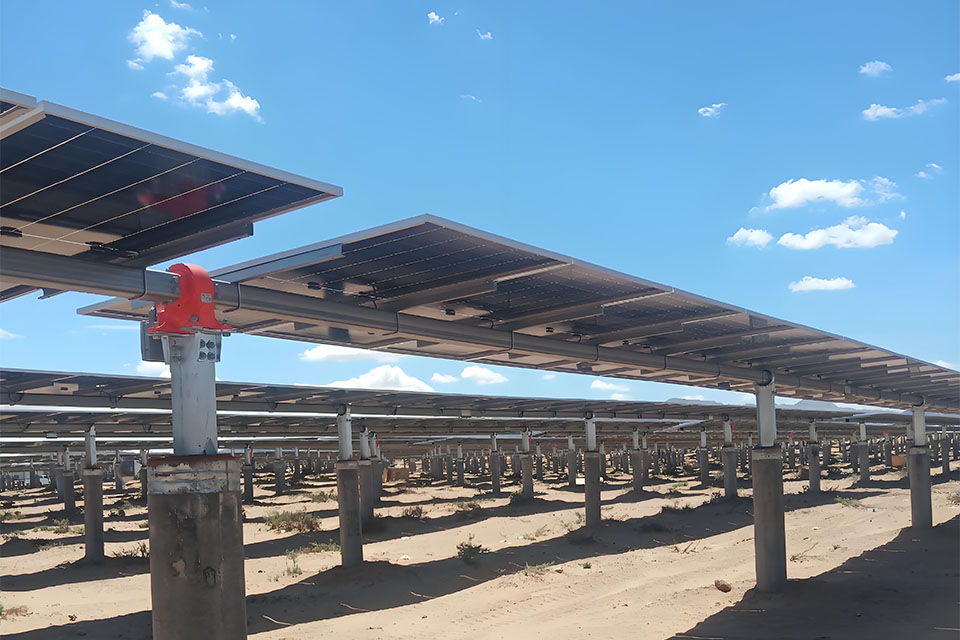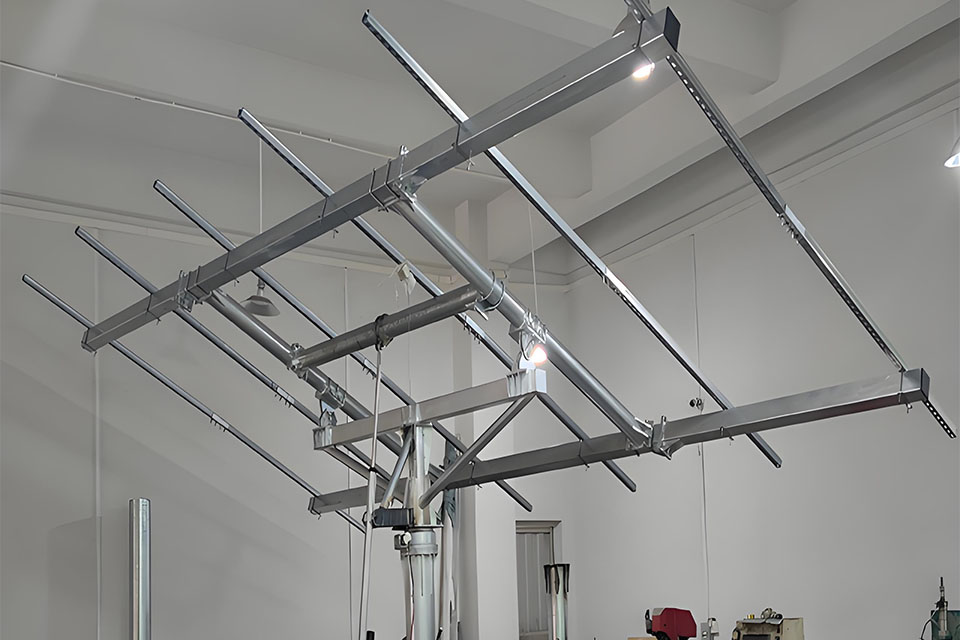Solar farm drivers, EPC contractors, and renewable energy capitalists face a ruthless obstacle: pressing every last drop of effectiveness from their photovoltaic or pv systems while maintaining O&M costs controlled. If your panels do not adhere to the sunlight, you’re essentially leaving cash on the table – and no person wants to do that when margins are thin.

This overview breaks down a crucial piece of the puzzle: selecting the right DC electric motor and sensors for your Arduino-powered sun tracker. We’ll concentrate on what really matters in the field – reliability, power yield, lasting ROI, and system integration – backed by information, real-world use cases, and SolPath’s design experience.
실제 문제: 고정 패널 = 낮은 ROI
Let’s get straight down line. According to the most up to date research, dual-axis trackers can increase your energy output by 25 – 40% contrasted to taken care of installments (원천). That’s a massive distinction – not simply in kilowatt-hours, yet in real revenue and long-term asset value.
However optimization goes much deeper than simply adding a tracker. You require:
- The ideal DC electric motor for reputable, reliable movement.
- Accurate sensing units to ensure your panels in fact adhere to the sunlight, not simply guess.
- Components difficult sufficient to ins 2014 in harsh environments.
Obtain this wrong, and you run the risk of break downs, missed out on manufacturing targets, and overpriced upkeep expenses.
문제 해결 프레임워크
태양광 자산 소유자의 일반적인 고충 사항
Poor tracking accuracy cuts yield
- Cheap sensors or weak motors imply your panel is commonly “almost” facing the sun – unsatisfactory.
High O&M expenses
- Motors wear out, sensing units fail, and you’re climbing ladders to repair problems as opposed to collecting stable returns.
Difficult integration
- Components that won’t speak with your PLC or monitoring system expense time and money.
Environmental unpredictability
- Motors take up in wintertime, sensing units wander in warmth, and the tracker just sits still throughout a summertime storm.
Let’s punctured the fog. Below’s what you require to know, with specifications you can use.

A. 아두이노 태양광 추적을 위한 최적의 DC 모터 선택하기
- Electric Motor Type and Application Fit
- Slewing Drive DC Motors: Best for bigger commercial and utility-scale trackers.
- Linear Actuators: Ideal for smaller or single-axis systems.
- Servo/Stepper Motors: Useful for DIY or accuracy applications, yet can lack the muscular tissue for hefty lots.
- Trick Performance Specs
| 매개변수 | Recommended Range/Value | 왜 중요한가 |
|---|---|---|
| Voltage | 12–24V DC | Compatible w/ most controls and offgrid sources |
| 전력 소비 | ≤200W for standard axis drive | Lower O&M, better efficiency |
| Torque | Per application; 100–1000 Nm (slew) | Must overcome load, wind, and inertia |
| 온도 범위 | –30°C to +70°C | All-season, all-geo reliability |
| 침투 방지 | IP65 or above | Stands up to dust, rain, snow |
Pro suggestion: Motors with integrated angle protection, overload protection, and soft beginning dramatically cut break downs (SolPath Solar Tracker Series Datasheet).
- Combination Notes
- Match electric motor voltage/current ratings with your Arduino/motor chauffeur board (e.g., L298N H-Bridge).
- For large trackers, consider relay or MOSFET-based chauffeur circuits for managing greater currents.
Find high-performance tracker components here →.
B. 안정적인 태양 추적을 위한 가장 효과적인 센서
- Light-Dependent Resistors (LDRs):
- Cost-effective, basic to adjust.
- Placement: Shading tubes and appropriate spacing prevent incorrect sunlight placement readings.
- Not unsusceptible to wander in high humidity or UV direct exposure; think about weatherproof alternatives for harsh sites.
- Photodiodes/Phototransistors:
- Faster action and improved level of sensitivity versus LDRs.
- Useful if you desire sophisticated tracking accuracy or really quick actuation.
- Angle and Environmental Sensors:
- 회전 인코더: Report actual tracker placement for closed-loop accuracy.
- Ultrasonic wind sensors, rain detectors, temperature level sensors: Enable automatic stow modes and avoid damages during tornados.
- 정확성: Target sensing units with ≤ 1 ° resolution for optimum efficiency.
- Communication Protocols
- Prioritize sensors supporting RS485/Modbus, making sure smooth integration with industrial systems and SCADA systems.
A 500 kW PV farm in Sichuan upgraded its fixed south-facing structures to utilize SolPath’s Single Axis Solar Tracker system:
- Fitted with a 24V DC slewing electric motor (rated 180W, IP65) and built-in angle encoder
- LDR varieties placed in customized weatherproof guards for exact morning/evening sun detection.
- Wind/rain sensing units configured with auto-stow setting.
- Integrated by means of Modbus to farm’s PLC and remote monitoring system.
결과:
Yield jumped by 27% in the first operational year, O&M site gos to visited 45%, and no significant failings were tape-recorded – even with two hurricane events.
SolPath: Maximizing Your PV Tracker’s Value

SolPath develops solar tracking systems from scratch for international dependability and streamlined combination. 다음은 표시되는 방식입니다.
하드웨어가 중요한 이유
- 그림자 저항 추적: 독점 알고리즘은 부분 음영이 발생할 때에도 반환을 유지합니다.
- 원격 및 무선 업데이트: 사이트 위치에 상관없이 제어권을 얻을 수 있습니다.
- 견고한 엔지니어링: 당사의 DC 전기 모터와 감지 장치 컬렉션은 -30°C ~ +70°C에서 검사를 거쳤으며 최소 IP65 요구 사항을 충족합니다.
- 완벽한 시스템 통합: 추적 장치, 컨트롤러, 장소가 모두 협업하도록 개발되어 현장의 좌절감이 줄었습니다.
가치 제안 표
| 솔루션 기능 | 고객 혜택 |
|---|---|
| 고토크, 저전력 DC 모터 | 수명 단축 O&M, 눈/강풍 속에서도 안정적인 추적 |
| IP65+ 등급 센서/액추에이터 | 유지 보수가 덜 필요하고 구성품 수명이 길어집니다. |
| 플러그 앤 플레이 시스템(RS485/Modbus) | 빠른 설치, 통합에 대한 어려움 없음 |
| 예측 추적 및 날씨 기록 | 최대 생산 및 자산 보호 |
실제 모범 사례(실행 가능한 인사이트)
- 모터 토크는 항상 패널과 풍력에 맞게 설정하십시오. 크기가 너무 크면 전력이 낭비되고, 크기가 너무 작으면 전기 모터 고장 위험이 있습니다.
- 특정 영역에 맞게 LDR 또는 포토다이오드 감지 장치를 보정하세요. 각도, 보호, 세척 루틴도 중요합니다.
- 가능하면 환경 센서를 통합하세요. 단 한 번의 폭풍으로 추적 장치가 작동하지 않는다면, 바람/비 감지를 놓쳐 몇 달러를 아끼는 것은 잘못된 경제 정책입니다.
- 폐쇄 루프 주석(회전 인코더 또는 각도 감지 장치)을 사용하세요. 불균형을 해결하는 데 드는 시간을 크게 줄일 수 있습니다.
추천 레이아웃이 필요하신가요? 듀얼 축 추적 컨트롤러 키트를 확인하세요 테스트된 배선도와 코드를 확인하세요.
자주 묻는 질문
태양 추적에 브러시리스 DC 모터를 사용할 수 있나요?
네, 최고의 BLDC 컨트롤러와 드라이버 보드를 사용하세요. 아두이노가 전기 모터의 피드백 신호를 관리할 수 있는지 확인하세요.
최신형 태양 추적기의 일반적인 전력 소모량은 얼마입니까?
잘 설계된 시스템은 모터와 센서를 최소 비용으로 작동시킬 수 있습니다. 하루 50~200Wh 축당(실제 가치는 추적기 종류와 기후 현상에 따라 다름).
혹독한 날씨에서 센서를 어떻게 보호해야 합니까?
방수 처리된 부품, 포팅 컴파운드, 그리고 필요한 경우 자외선 차단제를 사용하십시오. 정기적으로 청소하고 필수적인 용도의 소비자 등급 부품은 교체하십시오.
테이크아웃: 다음 단계는 무엇인가요?
- 장기적 수익과 낮은 O&M을 위해 견고하고 안정적인 DC 전기 모터와 방수, 정밀 감지 장치를 우선시합니다.
- 투자의 미래를 보장하려면 보호/통신 기능이 통합된 추적 서비스를 선택하세요.
- 의심스러울 때는 현장에서 검증된 시스템을 활용하세요. SolPath의 상업 및 유틸리티 규모 범위와 유사.
에너지 회수율, 가동 시간, ROI를 한 단계 더 높일 준비가 되셨나요?
모든 규모의 PV 구축을 위한 SolPath의 현장 검증된 솔루션 실적을 살펴보세요..
- 개인화된 기술 지원이나 맞춤형 추적 장비 제안을 원하시면 엔지니어링 팀에 전화하거나 당사를 방문하세요. 추적기 구성 요소 선택.
더 깊이 있는 내용을 읽을 수 있는 주요 웹 링크:
- 비용 효율적인 추적기.
- 듀얼 축 추적 시스템.
- Installation & Maintenance Best Practices.
- Custom OMDM Tracker Solutions.
- 더 이상 태양이 빠져나가지 못하도록 SolPath로 끊임없이, 성공적으로, 믿을 수 있게 추적하세요.